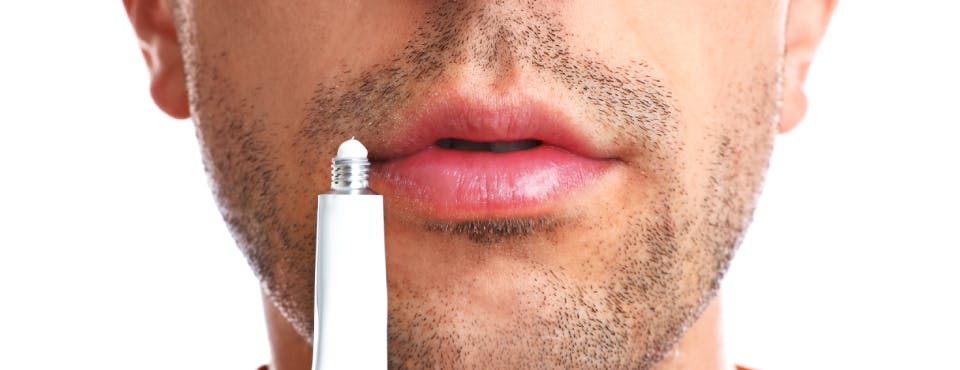
Our Guide to Different Types of Cold Sore Medication
The new or familiar feeling of tingling and burning on or around your lips has appeared and you’re wondering what steps you need to take to keep a potential cold sore at bay. Perhaps your cold sore has already developed and you’re unsure what medication you may need to treat the symptoms or you're sure that a cold sore is upcoming. Below, we explore your cold sore medicine options, when to use over-the-counter lip creams and ointments, or when it might be time to visit your doctor for prescription medication.
Over the Counter Cold Sore Medicine vs. Prescriptions
If you’re experiencing mild symptoms with a cold sore, such as the common tingling and burning sensations, or the small formation of blisters, you can consider treating the cold sore at home before visiting a doctor. Some common at-home remedies you can try are:
- Ice the area: apply an ice pack for five to 10 minutes each hour as soon as you begin to feel tingling in the affected area. This may help slow the development of your cold sore by decreasing blood flow.1
- Astringent solution: a cold compress such as Domeboro solution, which can be found in most pharmacies, can help dry a sore that is developed or blistering. It can also help relieve some of the pain and reduce the swelling accompanied with symptoms.2
- Over-the-counter medications: medicine such as aspirin or acetaminophen can help with pain relief. 3 Other options include: benzyl alcohol, camphor and phenol to help temporarily relieve pain, but it will not necessarily affect healing.4
- Abreva: our cream is FDA approved to help heal cold sores effectively. Follow the instructions on the package for effective use and be sure to use at the first sign of a cold sore.
If you frequently suffer from cold sores and experience severe outbreaks, it’s likely you will have to speak to your healthcare provider about managing symptoms. While over-the-counter medications may have helped alleviate your symptoms a bit, you may benefit from a visit to your doctor to discuss a treatment plan that can help you prepare for future outbreaks. Your doctor may recommend the following:
- Antiviral pills: acyclovir, valacyclovir, or famciclovir. 5
- IV: individuals with very severe outbreaks may receive an IV such as foscarnet or cidofovir. 6
- Prescription creams: if you are a patient with a weakened immune system, your doctor may prescribe a cream called penciclovir, which helps reduce the length of time you have cold sores.7
Note that cold sores don’t have a “cure,” which is why it’s difficult for some of them to go away without targeted treatment. If you choose to let your cold sore take its course and you experience symptoms for a prolonged period of time, the virus can spread to other parts of the body, such as the face, or lead to other illnesses.8
While having cold sores is certainly not fun, you have plenty of options to help mitigate symptoms and pain. Keep an eye on how your cold sore symptoms progress over time, their frequency, and what other symptoms, if any, accompany them. For more information on topics such as these and more cold sore education, be sure to visit the Abreva newsroom.
SOURCES
1-4. Cold Sores. University of Wisconsin-Madison Health Services. https://www.uhs.wisc.edu/medical/cold-sores/. Accessed 1/29/2021. All citations highlighted in yellow in source PDF.
5-8. Cold Sores: Diagnosis and Treatment. American Academy of Dermatology Association. https://www.aad.org/public/diseases/a-z/cold-sores-treatment. Accessed 1/29/2021. All citations highlighted in yellow in source PDF.
By clicking the link(s) above, you will be taken to an external website that is independently operated and not managed by Haleon. Haleon assumes no responsibility for the content on the website. If you do not wish to leave this website, do not click on the links above.




